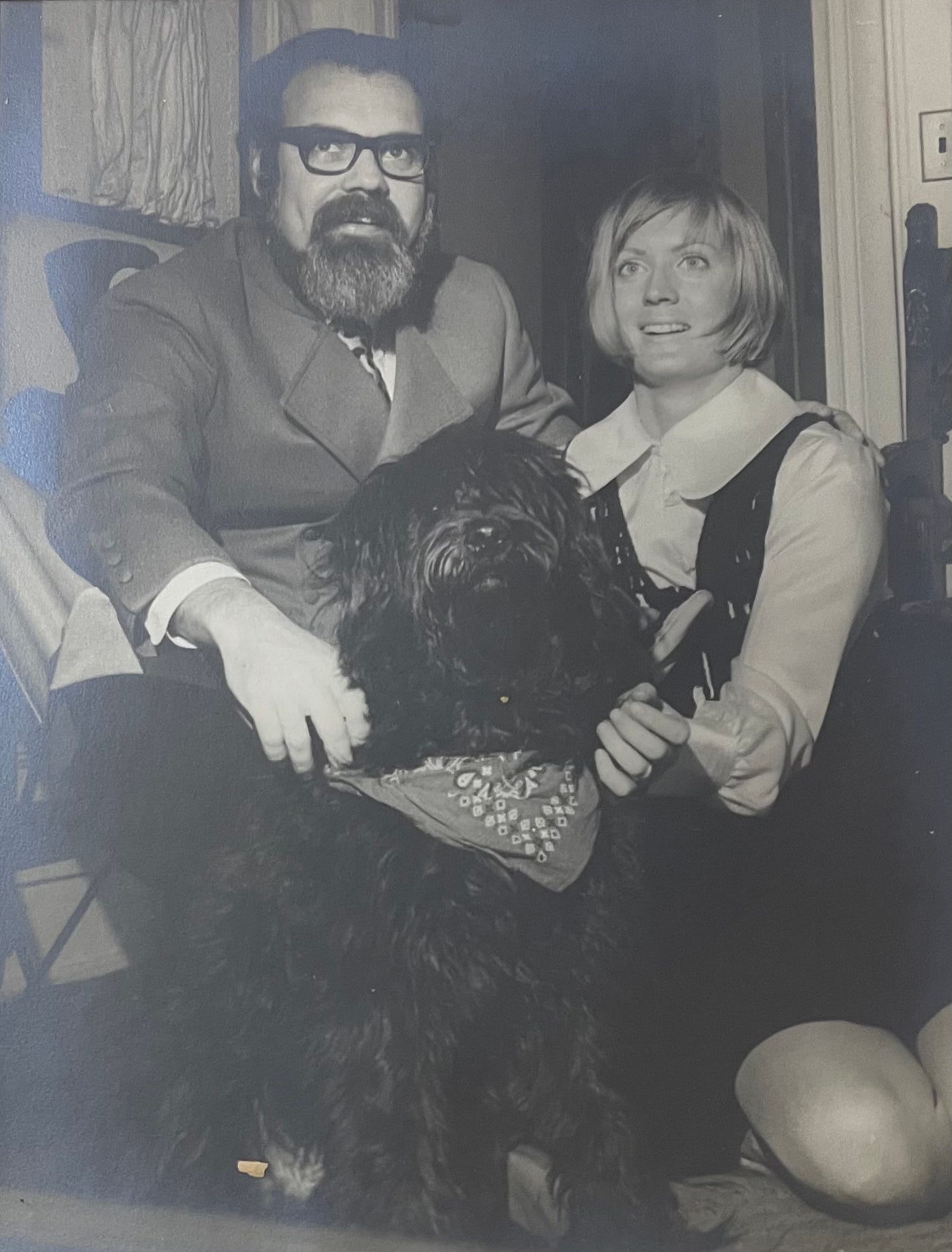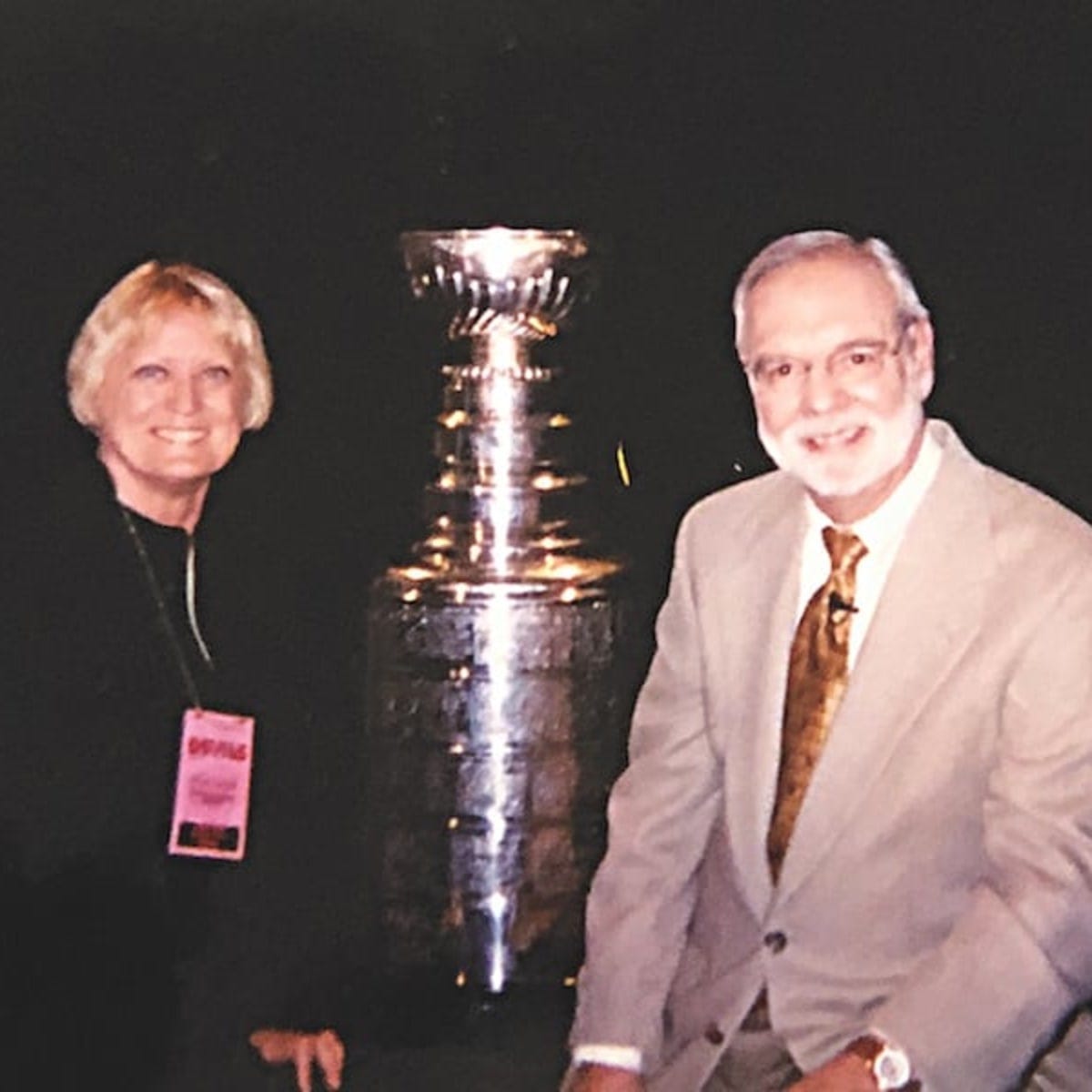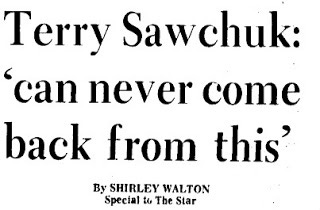Shirley Fischler: Hockey's Female Pioneer Remembered Here; Forgotten Elsewhere
Shirley was a trailblazer for Cammi Granato, Jessica Berman, Kathryn Tappen, Shannon Hogan, Kendall Coyne-Schofield, Theresa Feaster, Alexandra Mandrycky, Meghan Chayka & all aspiring young women
At a time when more women than ever are succeeding in all aspects of the hockey world, I respectfully suggest a brief pause to remember a female hockey pioneer, long forgotten.
That would be my late wife, Shirley Walton Fischler.
I'm reminded of Shirley for a couple of reasons not the least of which is that she would have celebrated her 80th birthday this past month. (She died of cancer six years ago.) For the record, we were married for 48 years.
Women who have succeeded in high hockey places such as Cammi Granato, Jessica Berman, Kathryn Tappen and Shannon Hogan, AJ Mleczko just to name a few, would have loved Shirley because she did what no other woman had done.
Success stories that include Kendall Coyne-Schofeld, Theresa Feaster, Alexandra Mandrycky and Meghan Chayka are others who would have admired Shirley's break-through bid.
Simply put, she broke the press box gender barrier almost a half-century ago. Her campaign for female journalistic equality began at the start of the 1970's and finally succeeded in 1972.
But why did it remain a virtual secret when it could have been a big story?
"Shirley's problem," one close friend observed, "was that she needed a good press agent. She wasn't looking for attention -- just equality."
But, "Toots," as she was known to family and friends, wasn't one for thumping her tub. Matter of fact, she shunned publicity. The limelight, she insisted, was for others.
Ironically all of this was happening while she was hosting a weekly one-hour radio program, "Young Side," for the American Broadcasting Company (ABC), one of the three largest networks in the U.S.
She also was an accomplished hockey writer who was refused access to the Madison Square Garden press box simply because she was a woman.
The "controversial" assignment at the time was to cover a Rangers-Maple Leafs playoff series for a leading Canadian daily newspaper, the Kingston, Ontario Whig-Standard. But it wasn't as easy as that.
Individual Rangers press tickets clearly stated, "Women not permitted in the press box." It was there in writing for every single game.
When she attempted to cover the first Leafs-Rangers game at MSG during that playoff, she was politely denied entry. This despite the fact she already had a long list of hockey writing credits.
She was co-editor-columnist of Action Sports Hockey magazine. She had co-authored hockey books and also was writing assorted features for the Toronto Daily Star newspaper, then Canada's most popular journal.
Shirley believed she had every right to sit with the gentlemen journalists and once chronicled her saga in a magazine story. It went this way:
"My moment of glory-infamy started in 1970 when I naively applied for 'Associate' membership in the Professional Hockey Writers' Association (then called the NHL Writers' Association).
"I had been writing hockey for two years on a regular basis and according to the constitution of the organization, I qualified for membership. I knew that the PHWA has something to say about who got into press boxes.
"I applied to the PHWA president of the New York chapter and was told that women could not belong to the organization because that would give me access to the press box and they didn't want that.
"I was also told that part of the problem was 'The dressing room.' Well, guess what? I didn't want to be in the sweaty, liniment-smelling dressing room with a horde of exhausted athletes and reporters."
A meticulous researcher, Shirley read the fine print of the PHWA constitution and found the secret words -- "an organization for men."
But the PHWA quickly changed the word "men" to "persons" and found still another way to erect a no-female curtain around membership.
Shirley: "The PHWA did away with 'Associate' members which was my qualification for the organization. Even free-lance members were no longer qualified. That eliminated my husband, Stan, from membership."
The easy way out was to forget about it, but that would be ducking this segregation problem. No way, Shirley would do that.
When Bob Owen, publisher of the prestigious Kingston Whig-Standard, hired her to cover the '71 playoffs in New York, she took her Olivetti typewriter up to the MSG press box.
The press box steward politely told her she could not enter. As it happened former Yankees pitcher-turned-broadcaster, Jim Bouton was right behind Shirley and would be her witness if and when it came to trial.
Meanwhile, she had to sit in a regular cramped side arena seat with her typewriter on her lap and stat sheet under her right buttock. She filed her story and then decided enough of this nonsense was enough.
"I'm going to take this to the New York City agency that handles these matters," she told me.
A woman named Eleanor Holmes Norton ran the city's Human Rights Commission and ordered a formal hearing. But not before Shirley felt the wrath of the opposition.
Shirley: "I was called a 'crybaby,' a 'troublemaker,' and a 'publicity hound,' just to name a few of the mildest expletives.”
Rangers general manager Emile (Cat) Francis and his publicist were polite but went along with the opposition. Only one journalist took Shirley's side -- Neil Offen, a young New York Post reporter.
Often wrote a column supporting Shirley's bid for press box entry. After hearing both sides of the issue, Eleanor Holmes Norton decided in Shirley's favor and she finally was admitted to the media section.
I still have the official confirmation papers before me, dated November 16, 1972. One is from MSG's rep, John C. Diller, and the other from the Human Rights Commission's Joy Meyers.
Still, it was tough on my wife. "I had to face all the male writers who had been calling me names -- or worse, trying to ignore me for two years," she remembered. "I still had to prove I was the professional I said I was."
That was accomplished with her game stories, features and attendance at her first post-game media scrum led by g.m. Francis. The "showdown" took place when Francis entered the press room.
Shirley: "I was positive that he'd pretend I didn't exist."
The Cat instantly noticed her and said, "Hi-ya, Shirley," in the pleasantest tones. "How's it going? How've ya been?"
Emile made her feel warm and welcomed and known. And when the press conference was over she walked out with notes in hand and her professional face cool and composed.
"As I walked past some of the (male) reporters," she recalled, "one of the men leaned to another and whispered loudly: 'Who's that, one of the player's wives?'"
Shirley not only shrugged it off, she returned to the typewriter -- later computer -- and continued to reel off "Firsts" that went completely unnoticed. To wit:
* Shirley and Yours Truly became the first husband and wife team to work together on hockey television. The season was 1973-74; an entire season of New England Whalers games for Boston TV.
* Shirley was the last journalist to interview Hall of Fame goalie Terry Sawchuk before he died. Her interview appeared in the Toronto Daily Star.
* She was architect of the Macmillan Hockey Encyclopedia which still is considered the best research volume in the sport.
* She wrote more hockey books than any of the PHWA writers who banned her from membership.
The list goes on and, by now, you get the point.
Shirley Walton Fischler was a courageous leader in the women's battle for equality and opportunity in hockey's journalistic world.
It's time that this "secret" gets some attention and recognition!








Stan, I certainly remember Shirley and her superb work on the hockey beat for so many campaigns. I could never forget Shirley, any more than I could ever forget you. You and Shirley were, and shall remain for all time, the National Hockey League's first couple of journalistic excellence; a partnership of excellence that overflowed with passion, enthusiasm, knowledge and insight for the sport you loved, and its participants that captured your imagination. God bless you and the tremendously missed Shirley.
The late Jack Lautier who passed away from cancer about 15 years ago was a great hockey writer who covered the Whalers and when Simon became ill with his heart issue, I got Stan's phone number from Jack and called Stan offering my prayers and wishes. My late cousin had worked for the Rangers in the 1960's and 1970's.
Stan was so nice and pleasant and I didn't want to make a pest of myself but just to offer my prayers and best for Simon.
Happy 90th birthday to Stan and many more and Simon looks so healthy and wonderful. I think he was around 15 when he became ill if I remember and thank god for modern medicine.
Emile Francis just passed away and to be honest was not a fan of Shirley and was old school. Shirley was the Jackie Robinson of female hockey writers.
RIP Shirley and again Happy Birthday Stan.
Jack Smith